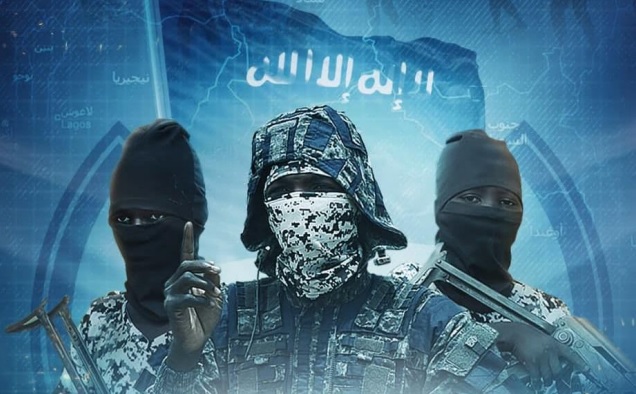The year 2021 saw major growth in the significance of IS provinces in Africa to the group’s central command, manifested both by the attention given to the African provinces in IS propaganda and by developments on the ground. In terms of the latter, the spread to new territories and the incorporation of new TTPs in their areas of operation, in addition to assistance from experts from abroad, has made ISWAP and ISCAP the most prosperous branches of the group in the last year. In the cyber sphere, jihadists continued to search for more secure ways to communicate and share content, finding alternatives to popular social media platforms and instant messaging apps, and using new tools to maintain privacy and avoid detection online, while eyeing the threats coming from new technologies such as “smart cars.”
In our estimation, the most noticeable leap in Africa in 2021, was made by ISCAP, who within a few months, consolidated its presence in Mozambique and the Democratic Republic of Congo in tandem with a swift expansion toward Uganda, Tanzania and Rwanda. In the Sahel, the Islamic State’s West Africa Province has gained power at the expense of the splintered Jamatu Ahli Al-Sunna lil Da’wa Wal Jihad, despite the fact both suffered major losses in their leadership ranks, and has positioned itself as a leading jihadi and religious authority in the region. Likewise, the rivalry between Al-Qaeda’s Jama’at Nusrat al Islam wal Muslimeen and the Islamic State in the Greater Sahara, and the killing of high-ranking leaders on both sides, has denied the dominance of either one. On the other hand, AQ-affiliated jihadi actors seem to be eyeing new terrains, such as Togo and Benin. In the Horn of Africa, despite the gradual growth of IS – Somalia Province, Al-Shabaab has maintained prominence in Somalia while looking toward shifting the battlefield to Kenya, and potentially Djibouti.
Vis-á-vis expected American withdrawal, spiraling sociopolitical instability and a decrease in the power of rebel and jihadi Sunni groups, Iran successfully expanded its influence in the Middle East in the passing year as well. This was manifested in Iraq and Yemen with the growing rocket and UAV attacks carried out by armed Iran-backed Shiite groups. In this context, the failed targeted assassination of Iraqi PM Al-Kadhimi constituted a blatant attempt to manipulate the post-election Iraqi politics. At the same time, the complex multilateral conflict in Syria appears to have become a managed conflict stirred mainly by foreign powers, rather than a war, whose end, as in Yemen and Iraq, is yet to be foreseen.
On August 15, 2021, 18 months after the signing of the Doha Agreement between the Taliban and the US, and amid the final stages of the US withdrawal from Afghanistan, the Taliban entered Kabul and took over the country, with little or no resistance from Afghan government forces. Despite their lightning, smooth takeover, the group is already facing several significant challenges – economic crisis, diplomatic isolation, and an imminent terror threat from the Islamic State’s Khorasan Province, which is continuing to carry out high-profile, mass-casualty attacks, particularly against the Shia minority and Taliban officials and symbols. Between the Taliban’s mantra that it will not let any terror group use Afghanistan’s territory to carry out attacks outside the country, and ISKP’s unwavering determination to undermine the Taliban’s primacy on the regional jihadist landscape, the power struggle between the two groups is expected to continue to escalate, as the Taliban is now the sole ruler of Afghanistan.
The year 2021 was notable for propaganda by the Islamic State in India that gained momentum on the one hand, while the organization concurrently suffered a significant number of blows on the ground. The most prominent IS line recently has been incitement against Hindus across India, aimed at encouraging ISHP supporters to target as many Hindu religious symbols as possible. Al-Qaeda in the Indian Subcontinent seems to be following the same guideline of using growing Muslim anger in India and ethno-religious conflicts to gain the support of Muslims for the organization. The developments of each organization in terms of propaganda and field activity, as well as the impact of the Taliban takeover of Afghanistan on the Indian subcontinent, are presented in this item.
Get the full report
If you would like to get the full report, leave your details in the form below.





